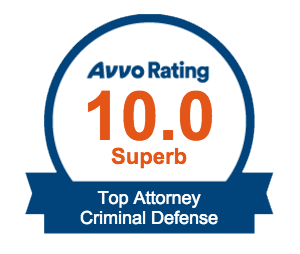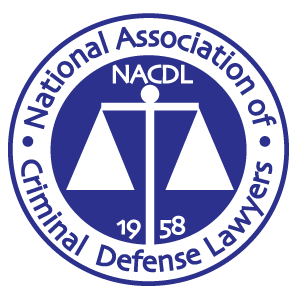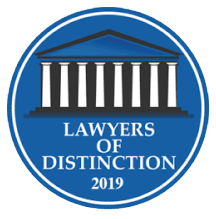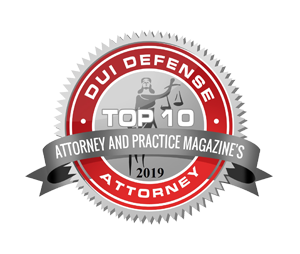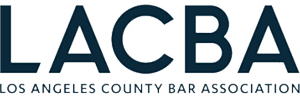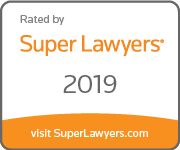If you have been arrested at a DUI sobriety checkpoint in Van Nuys, California, the arrest might infringe upon your constitutional rights. Drunk driving convictions are not only very costly but could negatively affect your life. Therefore, it is essential to seek advice from an experienced criminal defense attorney. At The DUI Defense Attorney, we believe that every case is unique and have successfully represented clients with driving under the influence charges for many years.
An Overview of DUI Sobriety Checkpoints in Van Nuys
DUI sobriety checkpoints are lawful in both federal and California law. Also known as roadblocks or mobile checkpoints, these checkpoints are traffic police stops that aren't tied to an individual or specific suspicions. That means locations selected for sobriety roadblocks are random and temporary.
The Supreme Court considers checkpoints as administrative inspections just like the airport screenings. As a result, DUI sobriety checkpoints are an exemption to the Fourth Amendment rule to the United States Constitution that a police officer should have reasonable suspicion or probable cause to start a driving under the influence investigation. That means the police can stop any car on the checkpoint and detain the motorist without a reason to believe that motorist has committed a crime.
What Happens When the Police Stops You
The law enforcer operating the sobriety roadblock typically takes off a part of the highway. Usually, this results in cars merging into a lane or two before stopping. The police officer will then ask you to roll down your window. The field officer will also request to see your driver's registration and license. The police will also engage in a short dialogue. The discussion assists the police officer in determining whether you are operating your car while drunk.
Rules and Regulations for Drunk Driving Sobriety Checkpoints
Regardless of the general rule, the California Supreme Court finds the temporarily blocked roadway does not break the Fourth Amendment rights of motorists. This is because the essence of keeping drunk drivers off the road outweighs the intrusion and inconvenience to other motorists.
Nevertheless, the Supreme Court's approval of DUI roadblocks does not mean every arrest at a checkpoint is legal. There are eight guidelines that law enforcers should follow, or you can use successfully to challenge your arrest at a DUI sobriety checkpoint.
It is worth noting that there isn't a minimum number that is required for a roadblock to be lawful. Instead, the court should balance California's interest in preventing driving while under the influence against subjective interruption on drivers, including the prospective for generating surprise and fear.
Below is an overview of the eight guidelines:
The Supervising Officers Should Make Constitutional and Operational Decisions
Before establishing a DUI sobriety checkpoint, an administrative police officer (not the officer on the scene or field) should make constitutional decisions that govern how the checkpoint will be executed.
This is done to stop any unconstitutional profiling, which would single out certain people based on national origin, race, questioning, among other detaining traits. It also lowers the capricious enforcement and arbitrary potential.
The decisions take account of the checkpoint's date, location, and how to select the cars to be detained briefly.
Drivers Should be Stopped Using an Impartial and Neutral Basis
Before establishing a checkpoint on-site, the administrative officer should make a decision about which vehicles will be stopped. Any field officer does not make this decision.
For example, the field police officer could be asked to stop six consecutive cars, let two pass and then ask the next six to stop.
The guideline can't be to stop drivers who look like they are of a given ethnicity, age, or gender.
The Location Should be Realistic
The DUI sobriety checkpoint should be set up in a place where there have been many incidences of alcohol-related road accidents or drunk driving arrests. This is to ensure the roadblock is more practical in stopping drunk motorists.
The Duration and Time of the Checkpoint Should be Realistic
There isn't a time perimeter on the duration of a sobriety checkpoint. It is acceptable for a checkpoint to last for as long as a whole weekend provided the liability on drivers is not significant. To cause minimal inconvenience to drivers, administrators, or supervisors responsible for planning the DUI sobriety checkpoint should make sure the checkpoint's duration and the time when the roadblock will be operational is realistic.
That means a roadblock on a roadway that is busy, especially through the rush hour is unreasonable.
Safety Precautions should be Taken
The supervising officer should put safety into consideration when selecting where to have a checkpoint. Common safety precautions include street layout, making the checkpoint noticeable to approaching motorists, and traffic patterns. This helps drivers to safety stop as well as navigate to and through the roadblock.
For example, if traffic starts to back up, the police should have an alternative place in place to manage the congestion by modifying certain practices. It could be stopping every fourth car instead of five consecutively.
There should be a Clear Signage of Mobile Checkpoint
You should be in a position to tell that you are getting near a driving under the influence stop. This reduces fear, which could result in you unsafely and suddenly trying to evade the checkpoint. An official DUI roadblock ought to be marked using flashing lights, warning signs, presence of police officers with uniform and marked police vehicles.
Motorists should be Detained for the Shortest Time Possible
Motorists should only be held at a checkpoint long enough for the field officer to ask them a few questions for a closer examination. Also, the police will look for intoxication signs like:
- Slurred speech,
- Red, watery, bloodshot or glassy eyes,
- Stumbling when walking,
- Failure to comprehend the questions asked,
- Inability to follow simple instructions,
- Argumentative, combative, jovial attitude,
- Dazed appearance, and
- Alcohol odor on the breath.
A motorist who demonstrates no sign of intoxication ought to be allowed to leave. Also, further investigation should be founded on reasonable suspicion or probable cause.
California DUI Sobriety Checkpoints Must be Advertised Publicly in Advance
If possible, a roadblock ought to be advertised beforehand. Nevertheless, failing to advertise the roadblock does not make it illegal. Law enforcers should publicize the checkpoint about one week prior to. You can find notice of forthcoming DUI checkpoints on and in:
- Law enforcement official website
- Radio and TV news stations,
- Local newspapers, and
- Advertising
The intention of publicizing is deterring motorists from consuming alcohol and operating a car in an area that has high cases of alcohol-related road accidents or DUI arrests. It also notifies drivers that their privacy and liberty will be violated for an insignificant time.
Is it Illegal for You to Turn Around as a way of Avoiding a Checkpoint?
It is not illegal for you to intentionally avoid a checkpoint. You can take an alternative route or even turn around provided you do it safely. In fact, police give the motorists adequate warning to permit them to evade the checkpoint safety. Moreover, department rules forbid police from stopping drivers simply because the drivers intentionally dodged the DUI stop.
However, traffic rules and regulations still apply. The police will still pull you over in an event while avoiding the checkpoint, you
- Have a defect like a damaged tail light,
- Violate a traffic rule, or
- Show signs of intoxication.
If you turn around and do so lawfully and safety but are still stopped, an experienced criminal defense attorney can assert that the police officer did not have probable cause to stop as well as detain you.
Can you Refuse to Cooperate?
A motorist can politely decline to answer questions asked by the field officer like whether the motorist has been consuming alcohol. Besides that, the motorist can decline to take field sobriety tests (FST). Nevertheless, the driver will be required to give their insurance details, registration, and driver's license.
According to implied consent law, you're lawfully obligated to submit a chemical test of your blood, breath, or urine should the police have probable cause (a reasonable reason) to arrest you as well as to make a request and issue the needed admonitions about your test.
Should you deny the chemical test and there is probable cause, you are likely to face substantial consequences like withdrawal of driving privileges for a year among other criminal penalties.
What Happens if You are Caught Operating Your Car Without a Driver's License?
What transpires if caught driving your car without a driver's license at a drunk driving sobriety roadblock depends mainly on whether:
You have a valid license only that you don't have the license with you at the checkpoint
If you do not have your driver's license with you, you could be charged with failure to display a driver's license (Vehicle Code 12951 VC). It is considered an infraction and could attract a fine.
If you can later present evidence that you had a valid driver's license at the driving the influence stop, the chances are that the charges against you will be ruled out.
You didn't have a Driver's License that is Valid
It can be more severe if you do not have a driver's license at all or it has been revoked or suspended. In that case, you will be charged with driving without a valid driver's license (Vehicle Code 12500) and driving on a suspended license (Vehicle Code 14601).
However, you won't be locked up at the sobriety roadblock provided:
- Having no license with you is the only offense you have committed (In other words, you are not arrested for an impending warrant or drunk driving), and
- The motorist (or the car's owner if the car belongs to another person) authorizes the vehicle's release to a licensed motorist after you are done with the roadblock.
Police Officers cannot Inevitably Impound Cars Belonging to Unlicensed Motorists
Before 2012, the law permitted police officers to seize cars driven by unlicensed motorists at DUI checkpoints. It was later argued that these car seizures:
- Were driven by financial incentives,
- Unlawfully targeted undocumented foreigners who at the moment aren't allowed to acquire licenses but require vehicles to go to work, and
- Constituted an unrealistic seizure that violated the Fourth Amendment.
Following the criticisms, the Legislature enacted Assembly Bill 353, known as Vehicle Code Section 2814.2. The section forbids the automatic vehicle impoundment at a roadblock if the only offense committed by the motorist is operating a car with no valid driver's license.
Are there Applications that Can Advise You of Forthcoming DUI Sobriety Roadblocks?
There are several mobile applications available today that claim to warn motorists of forthcoming DUI sobriety roadblocks. Waze, a traffic data application also reports the police's location, including the roadblocks. However, Waze's data is generated by the users; therefore, it cannot be comprehensive or accurate.
It is worth taking note that mobile applications rise and fall depending on whether the developer has updated the app alongside the operating system (OS) updates of the platform and the current situation of the law.
For example, in 2011, Research in Motion (manufacturer of Blackberries) and Apple (manufacturer of iPhones) forbidden selling of applications which:
- Encouraged as well as enabled driving while under the influence and
- Highlighted driving under the influence roadblocks not issued by law enforcers.
This was after the U.S. senators showed concern that these applications were providing intoxicated motorists a tool to avoid checkpoints.
However, according to a Google search, these applications are still accessible on smartphones that run on Google's Android operating system and for iPhones.
Frequently Asked Questions on DUI Roadblocks
-
When Can You not Avoid a Checkpoint?
One of the methods used by police to prevent motorists from avoiding roadblocks is by disguising a checkpoint as a construction zone. When you are approaching, you will see construction signs and orange cones. Before you realize that you are operating your motor vehicle through a checkpoint, it will be too late to dodge the DUI stop as well as there will be no way to turn. When this takes place, do not try to pass without stopping. You have a legal responsibility to pull over and stop when police flag you down.
-
What to Do After Being Stopped at a California DUI Roadblock
Here are tips on how you can deal with a situation where you have been stopped at a DUI roadblock:
- Be polite and remain calm always
If you are feeling nervous, recall that this is a DUI roadblock and you aren't the only one who has been stopped. Remaining collected and calm will communicate to the field officer that you do not have anything to hide. After answering the basic questions, you will most likely be allowed to drive on.
- Do not give more info than you are required to
After you have given the police your driver's registration and license, you do not have to answer any questions. The field officer will ask you questions about what you were doing and where you were at. Do not answer the questions. Instead, tell the police officer that you are exercising your right to remain silent. By checking what you answer significantly reduces the likelihood of landing yourself into more trouble.
- Don't consent to a motor vehicle search
Police require a probable cause and warrant or consent to search a car. Always remember that saying no is within your rights to refuse.
- You have a right to refuse to take an FST
Police could ask you to undergo a field sobriety test by the side of the road, but you do not have to give consent. Nonetheless, undergo a blood, urine, or breath test if you're supposed to. It bears repeating that chemical test refusal can lead to suspension of your driver's license.
-
What is the Importance of Hiring a DUI Lawyer?
The first benefit of having a competent DUI attorney is that the lawyer is familiar with essential legal standards and rules in depth. Even if a family law or bankruptcy lawyer, for instance, can draft pleadings, they may not be up to date with requirements for a checkpoint, blood tests or FSTS.
Additionally, hiring an experienced drunk driving attorney could lead to a reduced hit to your pocketbook. This is because the legal expert knows the significant law applicable to your charges and what evidence to look for.
Most defendants believe that there are only two options: to go to trial or take a plea. A competent attorney will take you through different options, as well. For instance, if you agree to enter a driving under the influence diversion program and complete an alcohol or drug education program, you could get a reduced sentence or even have the case dismissed.
A Qualified DUI Defense Attorney Near Me
Have you been arrested for drunk driving at a roadblock in Van Nuys? Well, you may think there is no way around the penalties. However, it is essential to know your rights. If for instance, the law enforcement agency responsible violates your rights by stopping and arresting you, a DUI defense lawyer like The DUI Defense Attorney can help you have the charges dismissed or charges reduced. For more information on what you need to know about DUI sobriety checkpoints contact us at 818-253-1913.

